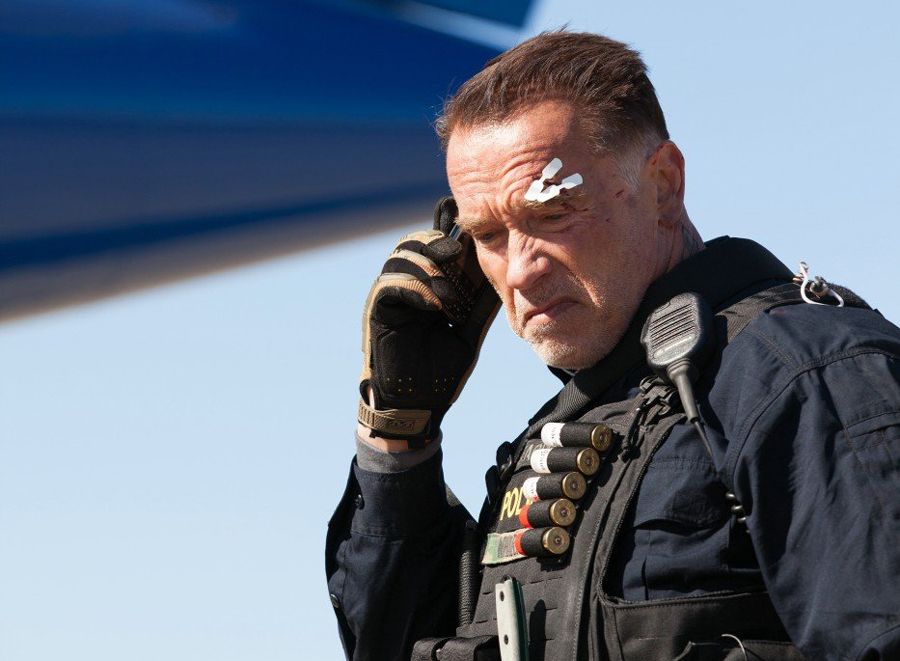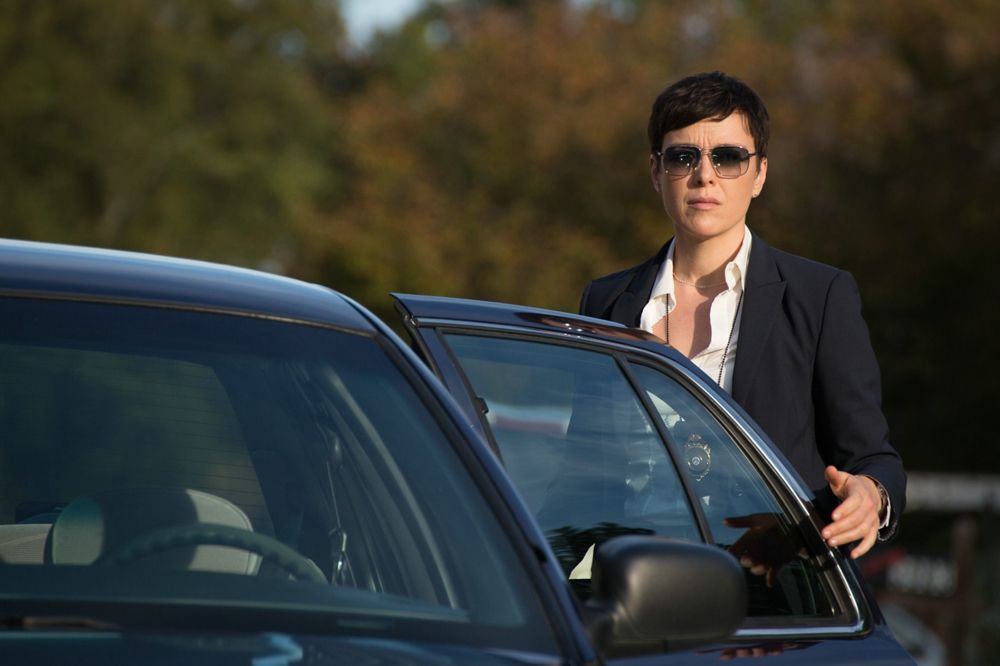It’s hard to know whether to call Sabotage an Arnold Schwarzenegger or a David Ayer movie, but whoever is “responsible” for it, it’s not very good.
Ayer’s career-long fixation with police stories seems to finally have hit a wall of not just complete implausibility, but full-fledged incompetence, while Schwarzenegger, I think, has yet to find the right vehicle to maximize his shift away from the invulnerable action heroes of his heyday. And together, they’ve produced a schizophrenic, mean-spirited thriller populated by terrible people, acting out impractical plans to, well, an end that feels more exhausting than cathartic.
Schwarzenegger plays John “Breacher” Wharton, the head of an unconventional but highly effective team of DEA agents. During an assault on a drug compound, he hatches a plan to embezzle a few million dollars from the cartel’s reserves, but the money goes missing, and the team disbands while the DEA investigates it for theft. But after everyone reunites in the aftermath of the investigation, Breacher struggles to maintain order, especially after two of the team’s members end up murdered. But when a local detective named Caroline (Olivia Williams) starts looking into the murders, Breacher is caught between his remaining teammates, who are looking to him for leadership, and the authorities, who want answers.
While I freely admit I have no idea what is and isn’t official police procedure when it comes to home invasion, suspect interrogation or crime scene preservation, it doesn’t feel like Ayer does either, which is inexcusable given his previous work on Training Day, Dark Blue, S.W.A.T., Harsh Times and End of Watch. But beyond the team members’ repeated strategy to pack themselves into enclosed spaces, their scheme to steal $10 million from the dealers seems weirdly overcomplicated and totally impractical, as it involves taping plastic bags stuffed with a few bills each to a rope, removing a toilet, and shoving the rope down the drain pipe.
That said, their foray into “corruption” is but the most deliberate example of the film’s bizarre, bipolar attitude about its characters, who are at each other’s throats in one scene and perfectly coordinated in the next, melancholy and reflective about the loss of a teammate at one point and glib and strung out at others. One supposes the rationale for their ongoing cruelty, hedonism and apathy toward the rest of the world is meant to be a counterpoint to the focus they supposedly bring to their jobs, but Ayer never evidences their skill either as a team or as individuals, except in expository bolts of dialogue. Additionally, he employs antagonism and meanness as the characters’ chief form of camaraderie, and quite frankly it never manages to be funny or even understatedly affectionate enough to be convincing.
Weirdly, the movie doesn’t even seem sure whether Schwarzenegger is the main character. Williams’ detective sort of takes over the middle of the film, and Ayer follows her investigation, which leaves the audience in the dark from both perspectives. As good an actress as she is, she can’t provide the film with any emotional clarity, either, alternately liking and suspecting Breacher without any real information to change her mind or point of view. Worst of all, the film’s wrap-up more or less invalidates everything that happens during its running time, as if the audience could have watched the opening scene and the closing one without enduring all of the foul-mouthed banter and weak-tea misdirection in between.
Although Williams is by far the standout performer in the cast, shuffling through her role with the same dogged integrity as the character she plays, she’s adrift in the script, which seems eager to include improvised banter as often as possible that has no bearing on the characters or story. Schwarzenegger, meanwhile, isn’t exactly sleepwalking through his role, but he’s no longer the automatic authority figure he once was. The writing honestly seems more to blame than his acting, but it’s just never clear if he actually has control of his team, wants to manipulate them, or is on some quest of his own that has nothing to do with anyone – and that detachment/ ambiguity doesn’t even seem purposeful.
Worst of all, there’s virtually no momentum. The action scenes are simplistic and plodding, and the mystery that binds the characters together – who is murdering Breacher’s team? – unfolds with such an erratic pace that you scarcely realize it once the climax has arrived. Ayer can’t decide whether the audience should be informed of what’s happening so that we can watch the characters discover it, or if they too should be left in the dark until all secrets have been revealed.
Ultimately, where predecessors to its themes like Rolling Thunder and Unforgiven exude an atmosphere of melancholy, and inevitability, the cumulative weight of a life of brutality and violence, Ayer’s sense of graying machismo is crude, lumbering and callous. A sad embodiment of the current state of action movies that desperately, and poorly, ape the ones that made Schwarzenegger famous, Sabotage fails to provide a proper tribute to the era when they actually mattered, and completely misinterprets the qualities that made them good.
Sabotage opens today nationwide.



